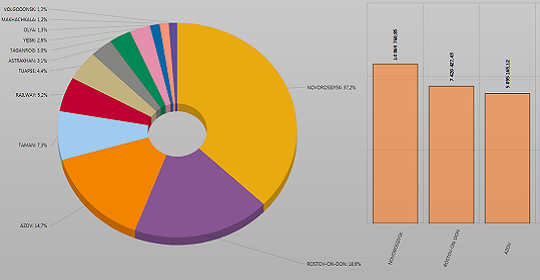On June 27, a Conference on Food Security was held in Moscow with the participation of many experts from the BRICS countries, where the main theses and development plans were announced.
According to experts who spoke at the event, the BRICS countries now occupy about 30% of all agricultural land on the planet, produce about 40% of grain, milk and meat, and about 50% of fish and seafood.
As a result, the BRICS countries own about 20% of global trade turnover in the agricultural sector, and from 2018 to 2022, the volume of exports in this area increased by 43%, notes the head of Agroexport Dmitry Krasnov.
The importance of the BRICS organization can also be clearly seen in individual cultures.
The Union of Grain Exporters notes that in the current season it accounted for 36% of world exports of rice, 20% of corn and 28% of wheat.
In general, over the past 10 years, the role of the BRICS countries in world grain production has increased from 41% to 44%, and in world consumption it has increased from 40% to 44%.
It would not be a great exaggeration to say that the BRICS countries already occupy half of the world grain market, and in the future this share may further grow – both due to the accession of new members of the association and due to the increase in their potential.
What are the future plans of the BRICS countries in the agricultural sector?
One of the main goals pursued by many states of the association today is to achieve self-sufficiency in the most important types of products, for example, grain.
While for some states, such as Russia, this goal has already been practically achieved, others, such as China, still have a long way to go in this direction.
At the same time, the bloc includes a large number of countries exporting and importing agricultural products, which opens up wide opportunities for interaction and synergy.
For example, Russia supplies grain to Egypt and is a strategic exporter in this area, but at the same time, Egypt can continue to be an exporter of vegetables and fruits to the Russian Federation, experts say.
The second important trend in the development of trade between the BRICS countries is the removal of logistics, financial and other barriers that may impede exports and imports.
In addition, within the framework of the BRICS bloc, various projects in the agricultural sector can be financed; it is planned that the New Development Bank will deal with this within the framework of the association.
Also an important task for the near future should be the unification of standards, the creation of a single seed bank and a BRICS information portal, which will allow countries and companies to quickly exchange important data.

